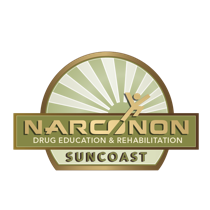How We Justify a Relapse and How to Avoid It

The journey to stay sober from drugs and alcohol can have its challenges. We sometimes fall victim to our own justifications. Thinking it might be okay to go get high again or to maybe just have that “one drink.” We think it might be harmless, we think we will be able to handle it, but in all reality, it will trick us into falling back into the same old routines and tendencies that were detrimental to our survival. Those of us looking to achieve a drug-free life will most likely face these temptations at some point, and some may hold onto reservations in our heads that there will be a time where one could safely use drugs or alcohol again. Whether it’s a death in the family, a separation from a loved one, or even the common spells of feeling down or the anxiety that may arise from a bad day, the thought of using again can arise at any point.
The most common myth regarding relapse is that it is okay in moderation or of less intensity or volume. This can prove to be an extremely dangerous way of thinking, because to an addict, the tolerance our bodies develop to these substances causes us to increase our usage to gain the desired effect that those substances may offer. Using “one more time” after a period of abstinence is also extremely dangerous, as a lowered tolerance can easily lead to an overdose. Once an addict starts down this path, it may be very difficult to get back on track. One resolution to this problem is the ability to be true to yourself about the issues that are causing you to want to use again. If the root of the problem is clear, the best course of action can then be addressed. Often, we avoid problems and how to resolve them by using drugs and/or alcohol, but those problems will remain as long as we let them. They must be brought to light and confronted so relapse will not occur.
Another major issue that many of us may face that most certainly can cause a relapse is if a person doesn’t learn the tools to cope with the change in lifestyle sobriety offers. The distancing from close friends, relationships and social settings that revolved around drug and/or alcohol use can create boredom and loneliness which can also lead to relapse. Boredom and loneliness are not just emotions that we experience, they are also a state of mind of being disconnected or isolated and can prove to be very dangerous when trying to remain sober. One can start to develop low self-esteem to a point where the only respite is drug or alcohol use. To combat this, the need to stay positive is a must. It is also important to remain connected with people who are supportive and beneficial to this new way of life. Working on yourself is never a bad thing, and if you work on yourself long enough, good things will tend to happen. Whether it be finding new topics of interest or hobbies or simply helping others, this will, in turn, help you to succeed with yours.
There are other methods that one can use to avoid relapse as well. The important thing is to find out what methods work right for you. Being aware of yourself and what works for you is paramount to continued success. Sobriety will not be without its challenges, but with patience, time and hard work, as well as learning to love yourself and others, the ability to sustain a healthy, happy and productive life free of substances can be achieved.
Bobby Green—Narconon Suncoast Graduate and Contributor


